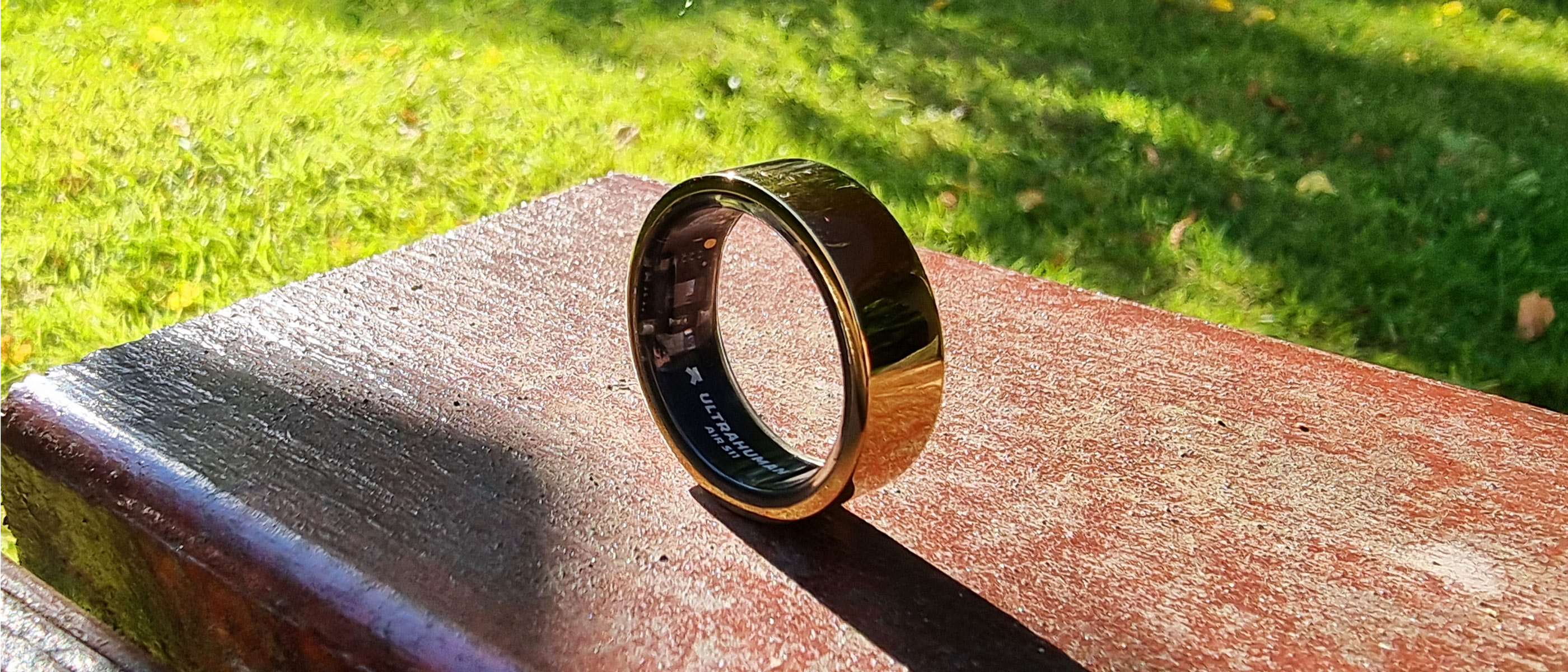Live Science Verdict
The Ultrahuman Ring AIR has all the marks of an excellent sleep tracker — it is feather-light and comfortable to wear, and it provides plenty of data-heavy insights into your sleep and recovery without sounding overly complicated. However, we would not recommend it for tracking workouts.
Pros
- +
Light and comfortable to wear
- +
Up to six days of battery life
- +
Accurate sleep-tracking features
- +
Personalized advice for improving recovery
- +
No subscription needed
- +
Optional blood glucose tracking (sensors sold separately)
Cons
- -
Imprecise heart rate measurements during intense workouts
- -
App connectivity can be patchy
- -
Scratches easily on sharp surfaces
Why you can trust Live Science
Smart rings are the new kids on the block. These compact and discreet alternatives to wrist-worn devices were invented around 15 years ago, but it was only the release of the Oura ring in 2015 that brought this innovation into the spotlight. Since then, Oura has been an unquestionable leader in the smart ring industry. However, this may not last long — its reign is threatened by the rise of the Ultrahuman Ring AIR.
Touted as “the world’s smallest smart ring,” this compact fitness tracker is gaining some serious popularity among athletes and regular folk alike. At $349, it is also price-matching the Oura Ring. But is it worth investing in?
The Ultrahuman Ring AIR measures a range of metrics related to your heart rate, body temperature, sleep, stress and movement, giving you detailed insights into your sleeping patterns and physical recovery. It is also compact, available in multiple size and color options, and can last up to six days on a single charge.
Moreover, the Ultrahuman Ring AIR can be linked to wearable skin sensors that monitor your blood glucose in real time — and that is something we have not seen before. Based on specs alone, this neat smart ring could be one of the best fitness trackers on the market.
Ultrahuman Ring AIR review
Ultrahuman Ring AIR: Design

- Ultra-light and comfortable to wear
- Stylish and discreet design to suit a wide range of outfits
- Prone to scratches on sharp surfaces
Display: No
Width: 0.32 in (8.1 mm)
Thickness (varies with size): 0.1-0.11 in (2.452.8 mm)
Weight (varies with size): 0.08-0.12 oz (2.4–3.6 g)
Sizes: 10 (5 to 14)
Colors: Raw Titanium, Aster Black, Matte Gray, Bionic Gold, Space Silver
Finish: Titanium and tungsten carbide carbon
GPS: No
Compass: No
Altimeter: No
Water resistance: Up to 100 meters
App compatibility: Android, iOS
Battery life: Up to 6 days
Warranty: 1-year, limited
The Ultrahuman Ring AIR boldly claims to be "the world's most comfortable and compact smart ring" — and there might be some truth to it. Weighing just 0.08 to 0.12 ounces (2.4 to 3.6 grams), depending on the ring size, it is surprisingly light and easy on the finger, and its slim design makes it feel slightly less clunky than other smart rings we tried on. We also liked that our Ring AIR did not seem to catch on hair or clothes, and its exceptionally smooth finish made it easy to clean.
The Ultrahuman Ring AIR may be light, but it does not feel fragile or “plasticky” — and that is not an easy feat to pull off. This smart ring is shelled with fighter jet-grade titanium and bolstered with a tungsten carbide carbon coating on the inner side, making it relatively resilient to damage. It is not invincible, though. The Ultrahuman Ring AIR may still collect a few scratches, especially if it sits on the finger 24/7.
The brand does not recommend wearing it while lifting heavy weights or dealing with sharp objects. Even though we followed this guidance, we still managed to scratch our testing unit a few times — while holding a glass bottle, for example. However, we would not consider it a deal-breaker. Any hand accessory is inherently more exposed to wear-and-tear damage than a wrist-worn watch. If anything, a few minor scuffs added some character to our Ultrahuman Ring AIR.
Get the world’s most fascinating discoveries delivered straight to your inbox.
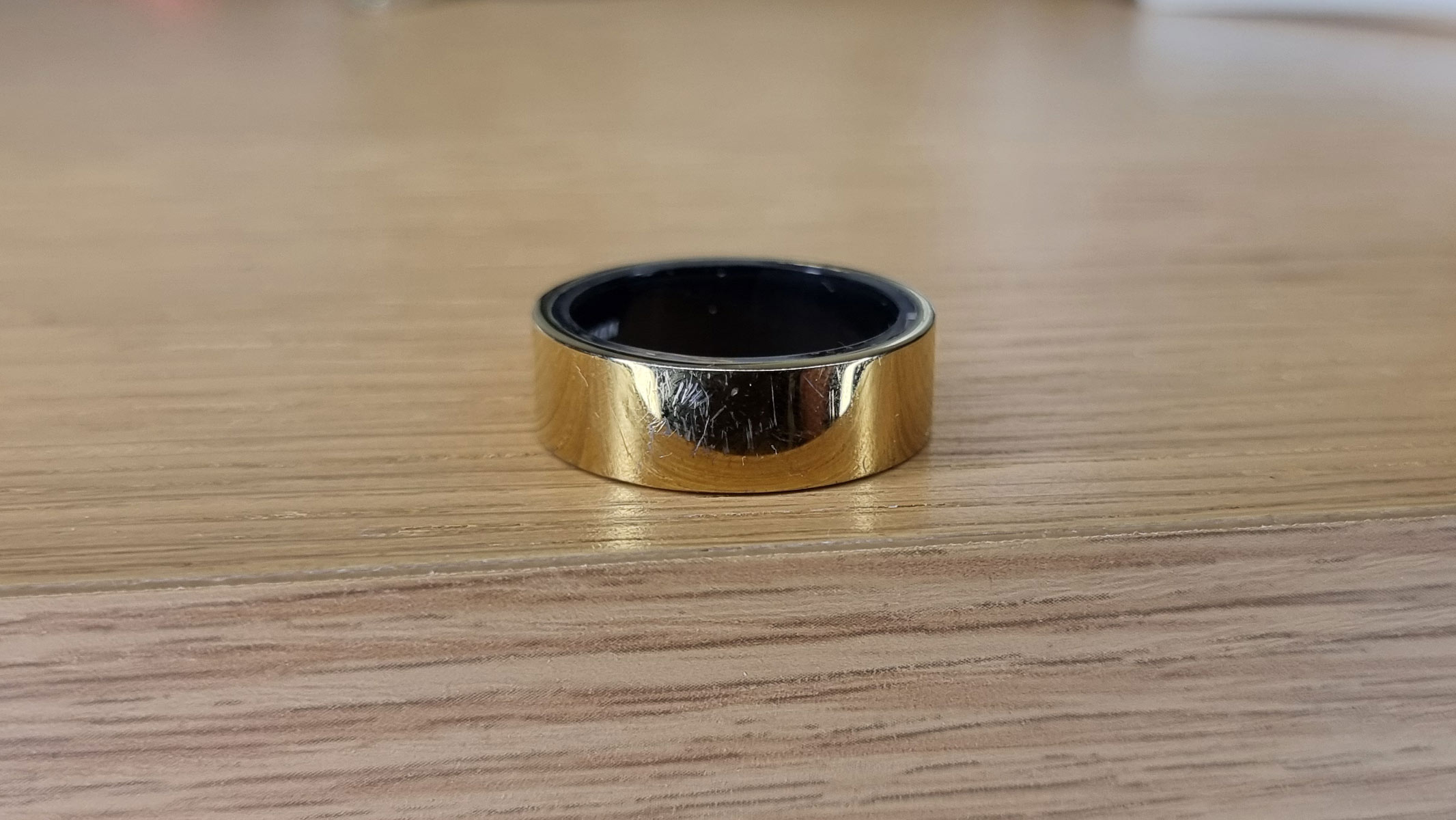
This fitness tracker is available in a range of colors, from classic matte black to gold and shiny silver, and for a fee, you can even spruce it up with a personalized engraving. Our testing unit came in Bionic Gold — and it really grew on us. The smart ring was stylish, elegant and discreet enough to suit a wide range of outfits. We also liked that the Ultrahuman Ring AIR was available in a good range of ring sizes.
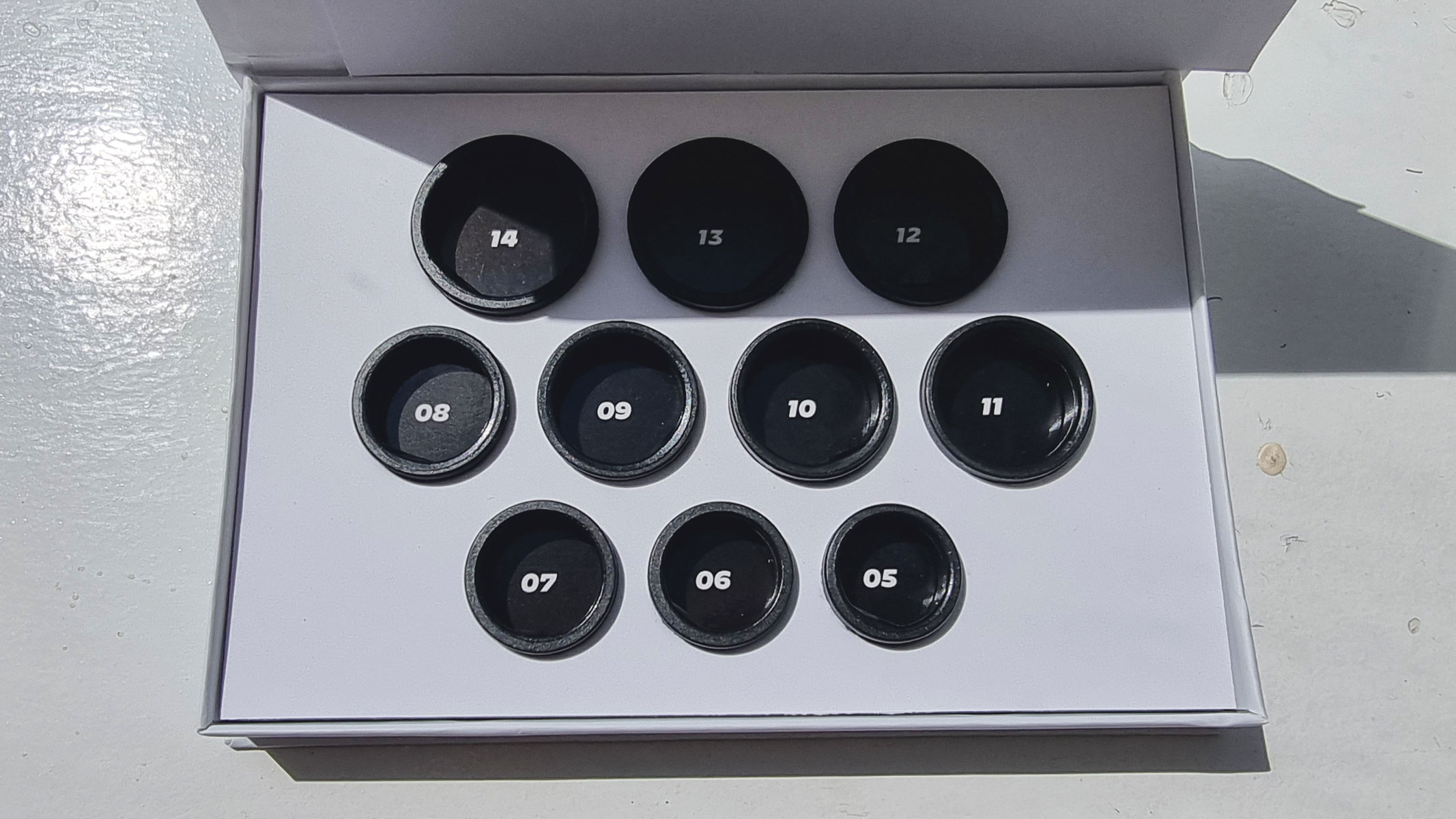
Ultrahuman Ring AIR: Features
- Detailed assessments of sleep and physical recovery
- Useful, actionable tips and personalized advice
- Optional blood glucose tracking (sensors sold separately)
The Ultrahuman Ring Air features a sensor for body temperature, a six-axis motion sensor for tracking movement, and a PPG sensor that measures heart rate, heart rate variability and blood oxygen saturation by detecting changes in blood volume under the skin. Based on these data points, the Ultrahuman Ring AIR then calculates metrics such as sleep duration, sleep stages, resting heart rate and circadian rhythm. It will also provide personalized advice on how best to improve your energy levels and physical recovery.
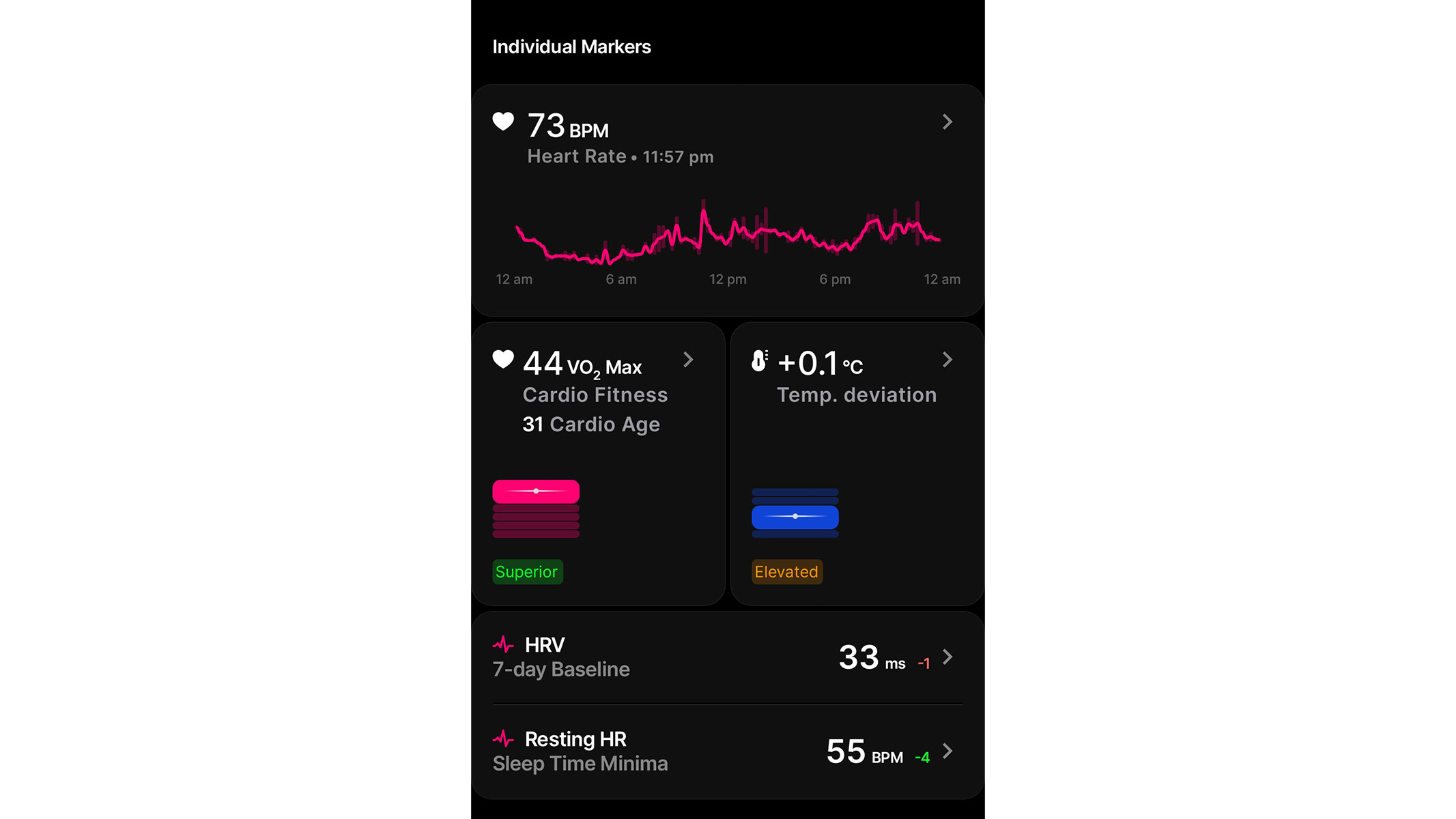
There is no screen on the ring, so installing the Ultrahuman app is essential for viewing stats and receiving notifications. It is perhaps one of the most data-heavy health apps we have seen, but beginners should not fear it. Every metric is explained in detail, numbers are easy to track, and all pieces of advice are provided in a digestible and actionable manner. The Ultrahuman app is also a one-stop shop for ring software updates, FAQs, contacting customer service and other handy features. The cherry on top? No subscription is needed.
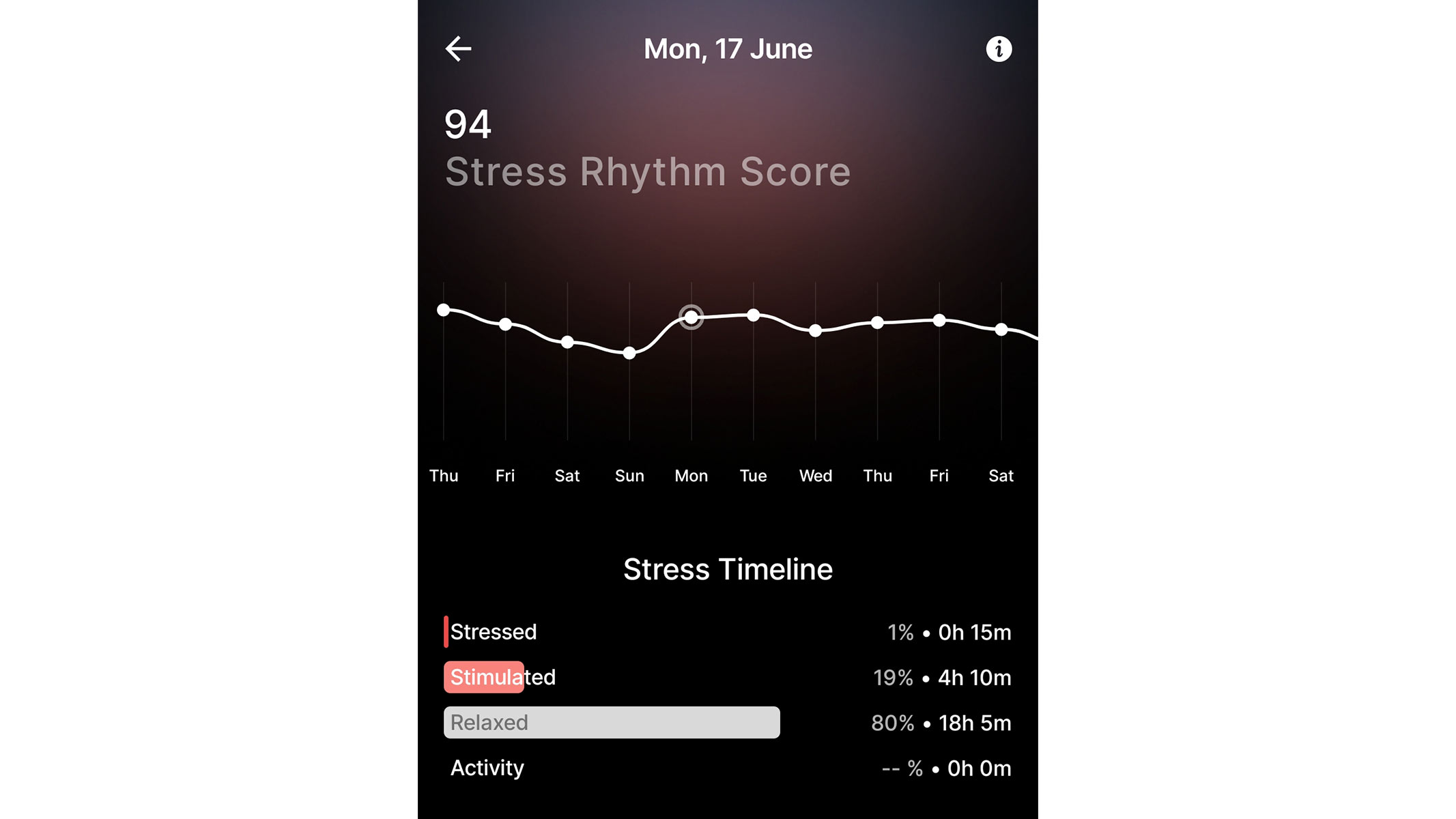
Interestingly, the Ultrahuman Ring AIR can be linked to the Ultrahuman M1 — a skin patch with sensors that measure blood glucose levels in real time. When used together, these devices can provide insights into your metabolic health and offer personalized diet advice. This was a big plus point for us. Tailor-made nutrition coaching is a rare feature in fitness trackers, but it could make a big difference to your well-being and exercise performance. The only issue is the price. One M1 patch only lasts two weeks on the skin, and it costs roughly $150.
Ultrahuman Ring AIR: Performance
- Excellent sleep-tracking features
- Poor heart rate readings during intense exercise
- App connectivity can be patchy
Performance-wise, the Ultrahuman Ring AIR is a bit uneven — so let’s start with the positives. First, the battery life. This smart ring can last up to six days on a single charge, and it charges quickly, too — it takes only two to three hours to hit 100% on your battery.
Next, sleep tracking features. The Ultrahuman Ring AIR offers heaps of insights into your sleep and physical recovery, going above and beyond the metrics you can find in most fitness trackers these days — and it is pretty accurate, too. Our smart ring was nearly spot on with detecting when we went to sleep and when we woke up, and its assessments of our sleep quality and overall energy levels always seemed to hit the mark.
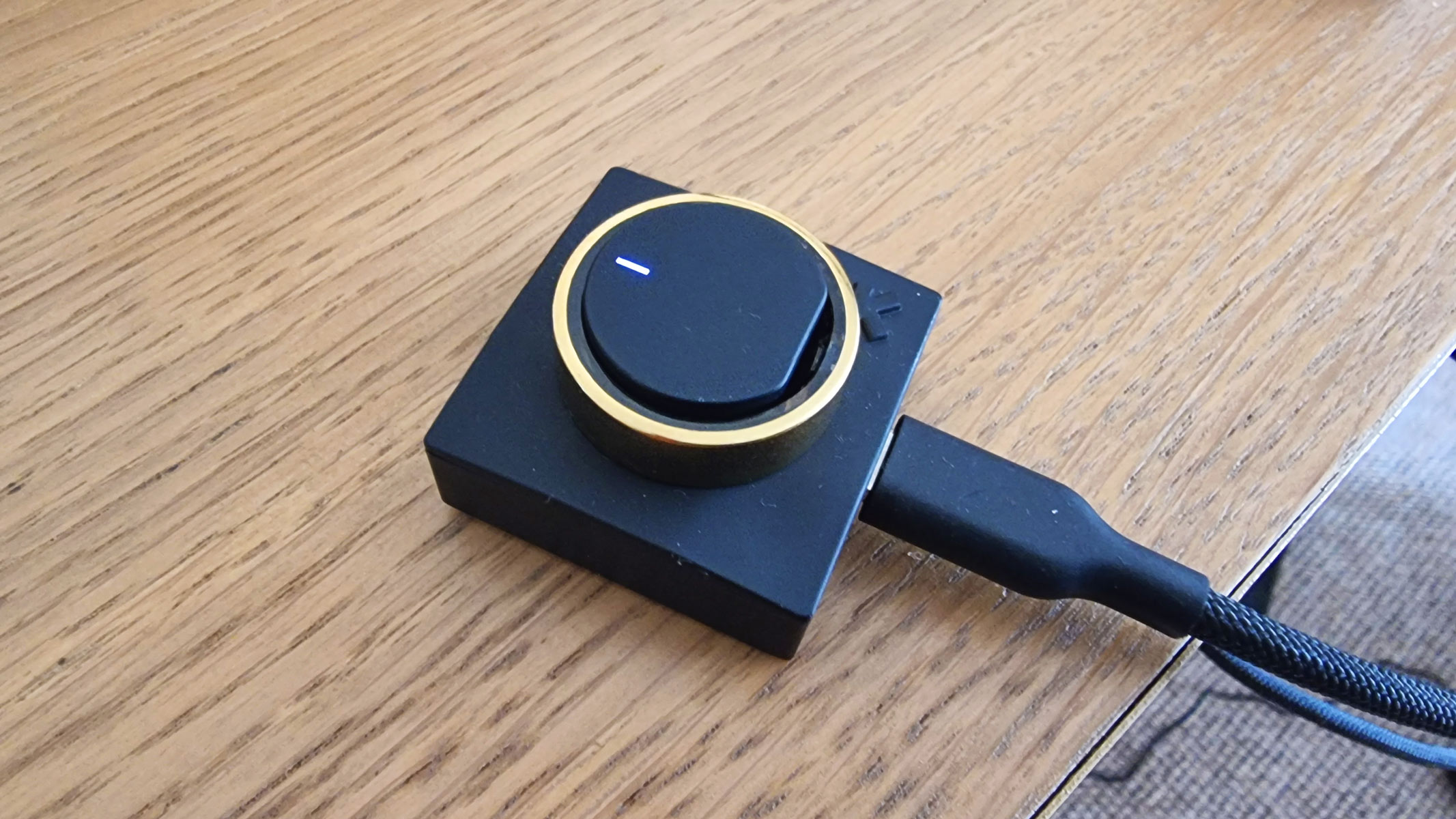
We found the personalized notifications to be particularly helpful. We learned a lot about our circadian rhythm, optimal exercise scheduling, and even when it is the best time in the day to ditch coffee or bask in the sunshine. All in all, the Ultrahuman Ring AIR could be one of the best sleep trackers we have ever tested.
We also liked its durability. We wore the Ultrahuman Ring AIR almost non-stop during our three-month testing period, and it did not chip or change shape. We even took it with us on a week-long trip to the Mediterranean, exposing it to scorching temperatures, salty sea water and heaps of sweat from climbing the mountains — and it never shut off or lagged. A real trooper.
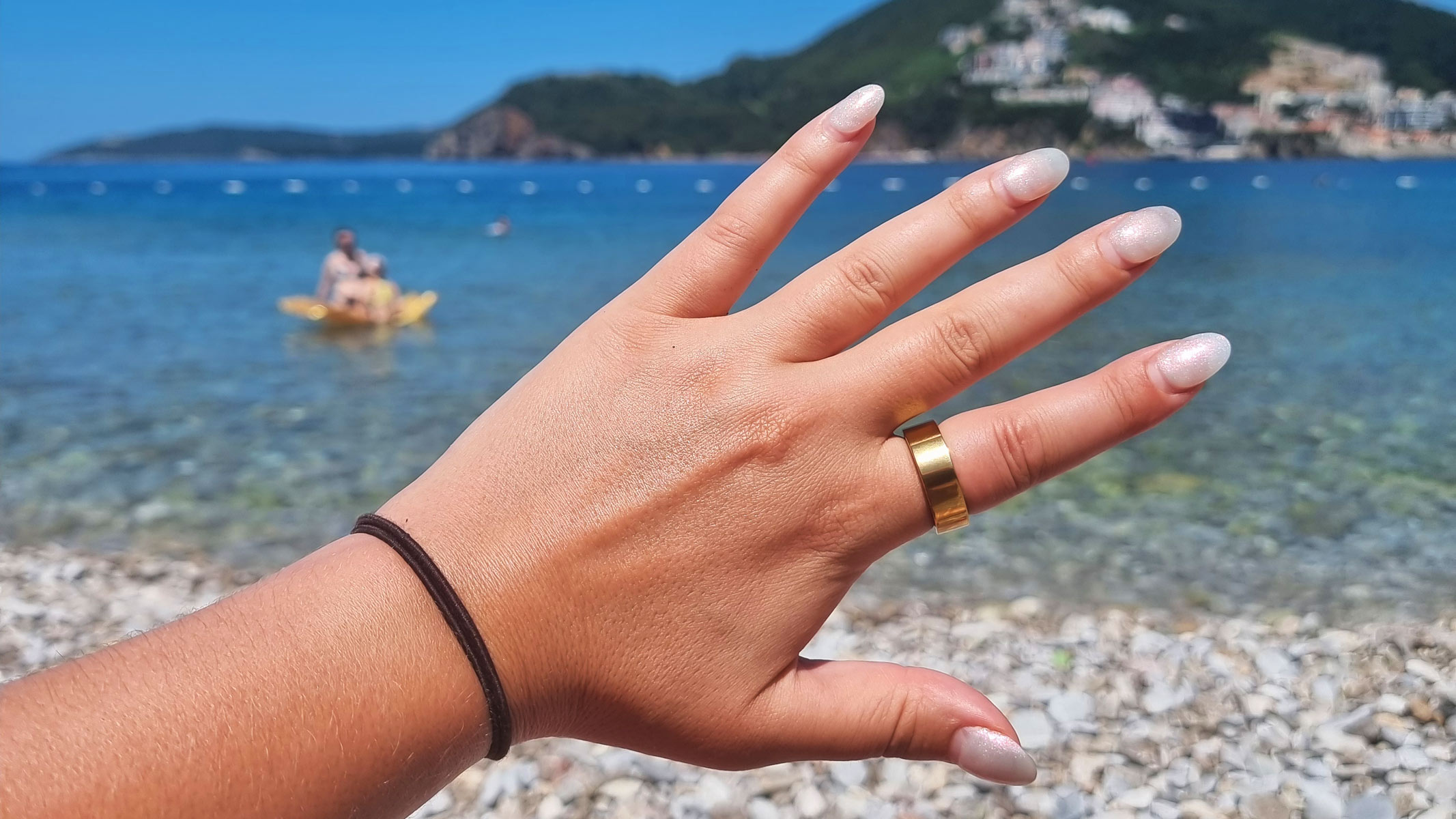
However, there are several major downsides to the Ultrahuman Ring AIR. First, its workout tracking features are quite limited. It only offers a handful of sports modes, with heart rate and workout duration being the only metrics measured (albeit that seems to be improving with each update).
We also found that the heart rate readings on our Ultrahuman Ring AIR were quite unreliable during high-intensity exercise. We compared the readings obtained with our ring to the data collected by a chest-strap heart rate monitor, both worn during the same workout, and noticed that the ring consistently underestimated our heart rate values during intense exercise. On the plus side, our Ultrahuman Ring AIR was quite precise with heart rate measurements at rest.
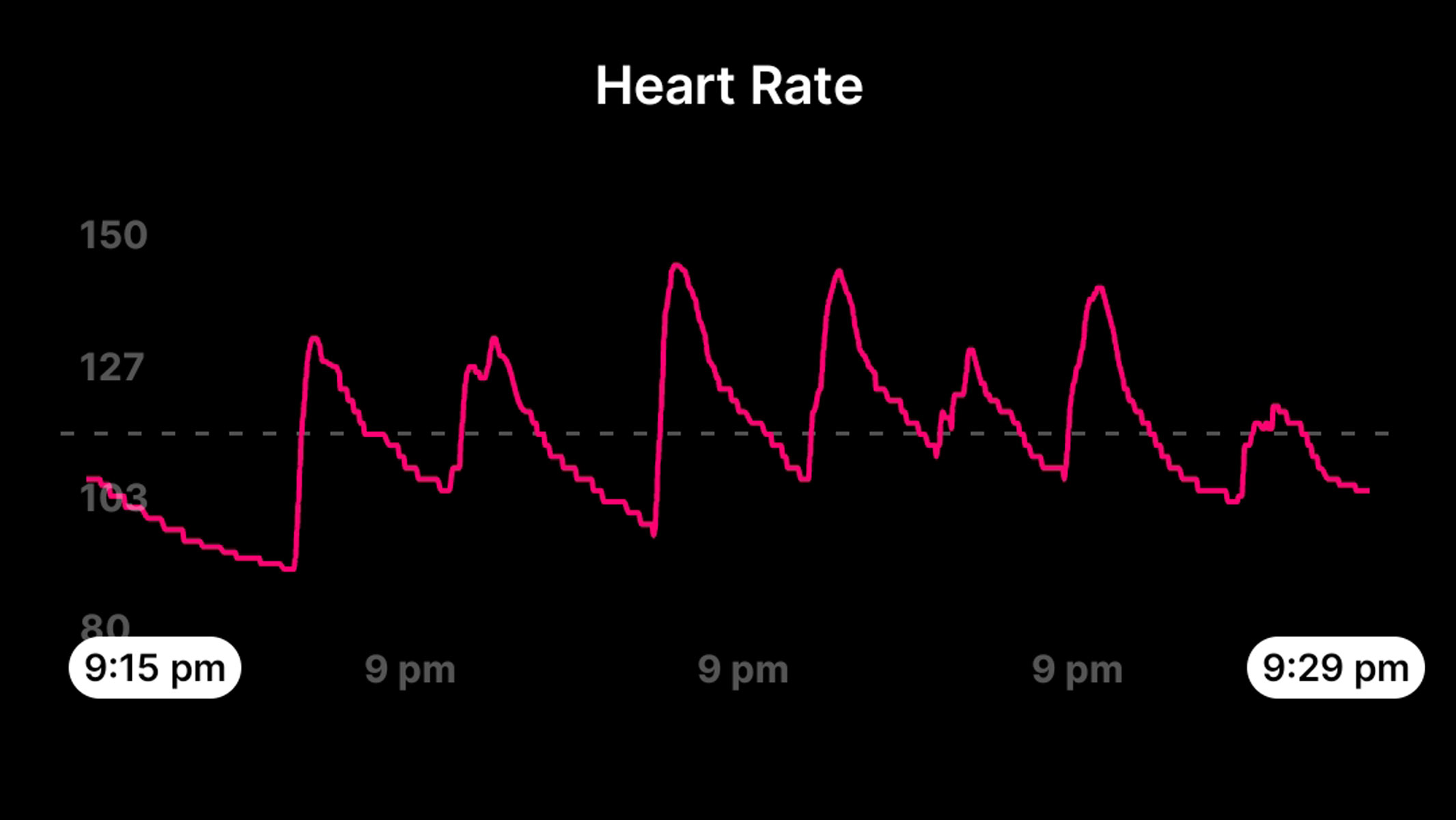
We were also underwhelmed by the app's connectivity. There were times when we struggled to sync the ring data or when the data transfer seemed to lag. In all fairness, refreshing the app several times often did the trick, but such patchy connectivity can be annoying nonetheless.
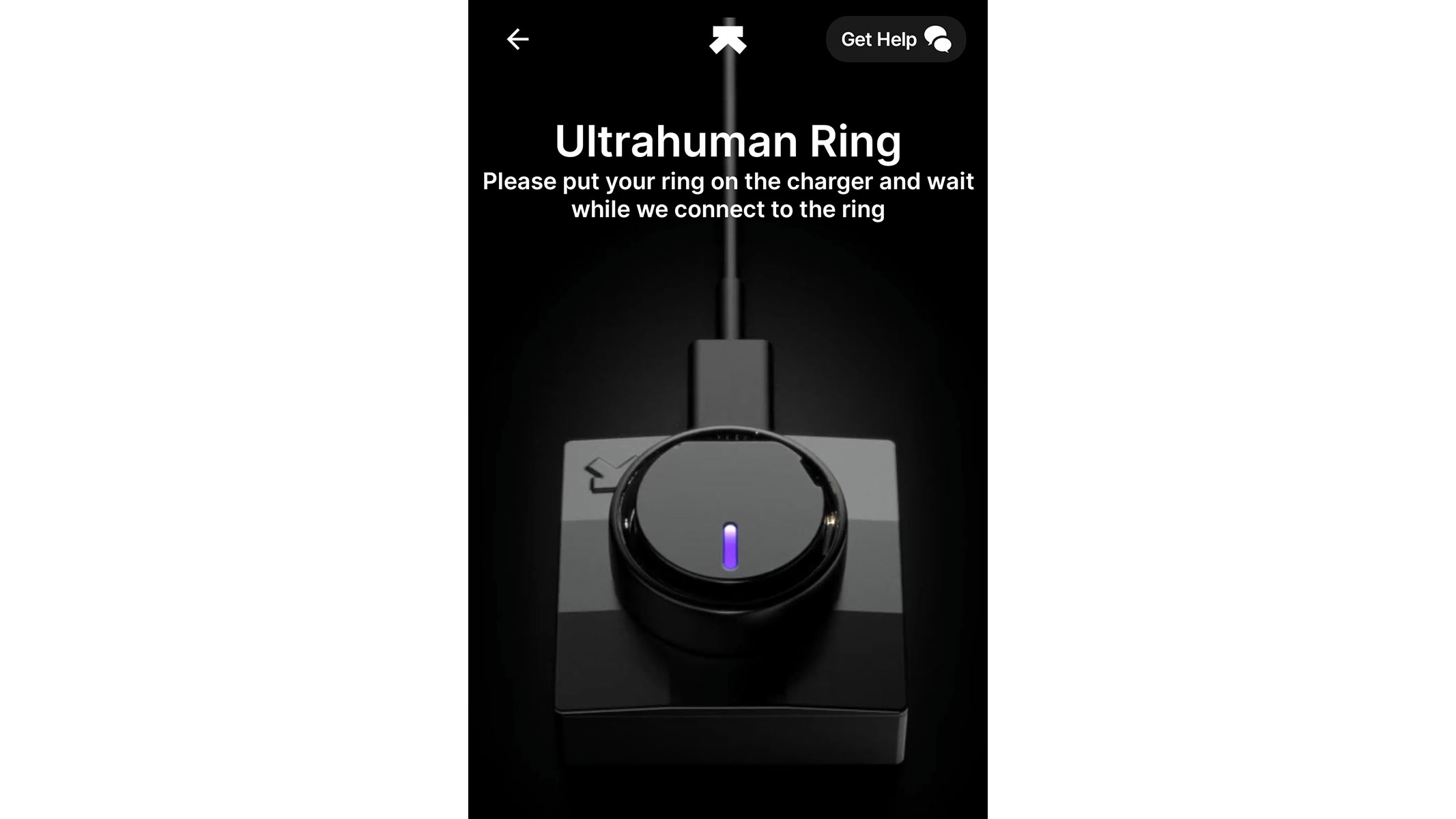
Ultrahuman Ring AIR: User reviews
The Ultrahuman Ring AIR is rated at 4.5 out of 5 stars on Amazon, with 71% of users giving it a full five stars. Positive reviews tended to praise its skin-friendly design and detailed tracking features, and many customers mentioned the subscription-free model as a massive perk. As one user said: "The Ultrahuman Ring AIR is very comfortable when compared to the Oura 3 ring, and its ring sizes better fit my fingers. I was also very impressed with the app. If you compare it to the WHOOP band 4.0, the Ultrahuman Ring AIR is more geared towards positive reinforcement rather than spanking you for bad behaviors."
Negative reviews often cited inaccurate tracking features and capricious battery life. As one user commented: "I purchased this ring to track my sleep and see where I could improve. In that respect, it has done a good job. However, it is sorely lacking in the movement detection department. For example, the step counter is wildly inaccurate. I walk for 7 miles and it only records 3,000 steps (for comparison, my phone recorded 14,000)."
Should you buy the Ultrahuman Ring AIR?
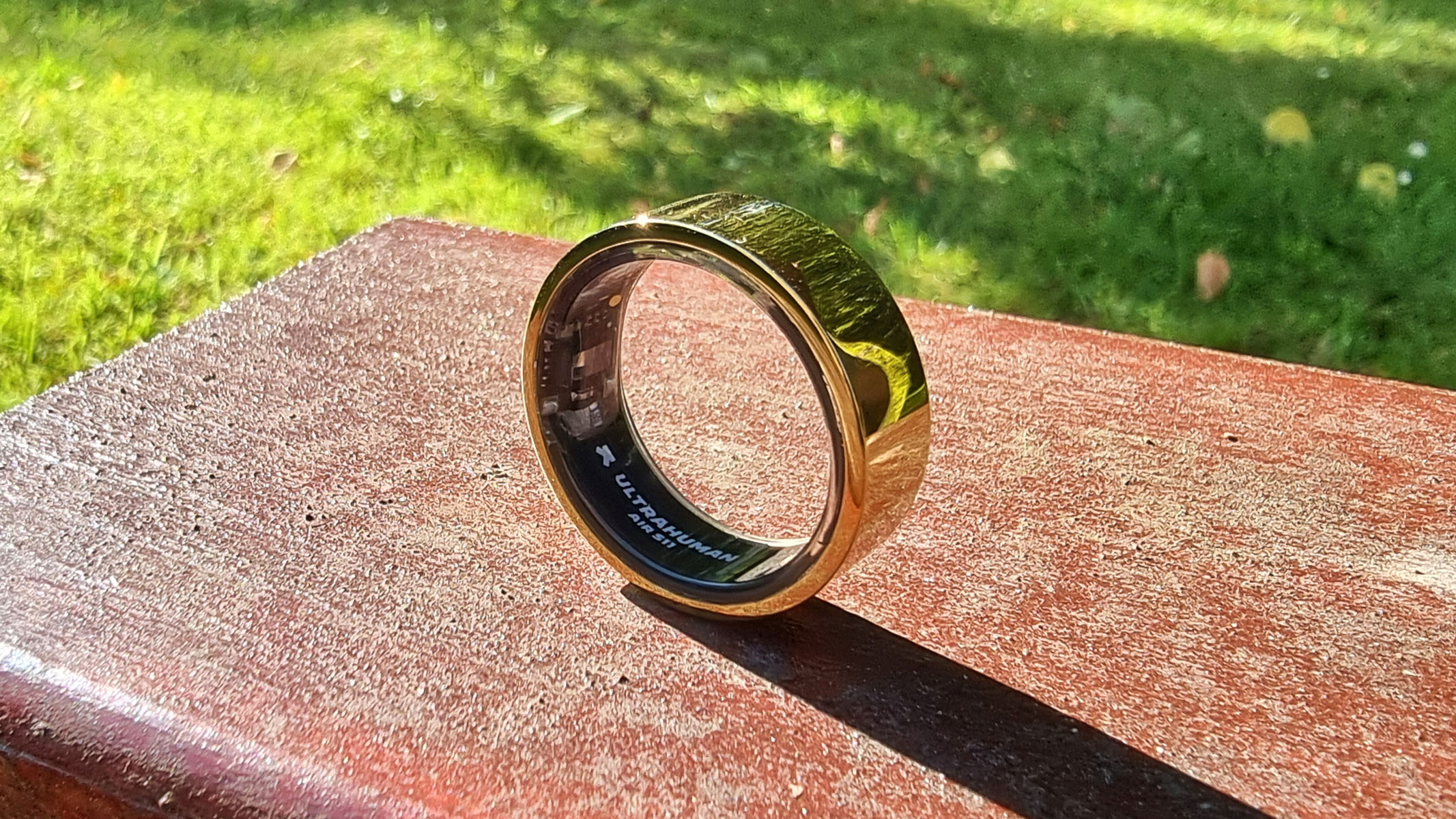
✅ Buy it if: You want an excellent sleep and recovery tracker designed for the data junkies of the fitness world. The Ultrahuman Ring AIR is stylish, ultra-light and comfortable to wear, and it provides heaps of useful advice on boosting your energy levels and overall well-being.
❌ Do not buy it if: You are looking for something that can step up your exercise performance. The Ultrahuman Ring AIR comes with limited fitness-tracking features, and its heart sensor may not be entirely accurate during high-intensity workouts.
If Ultrahuman Ring AIR is not for you
The Fitbit Charge 5 is a great alternative to the Ultrahuman Ring AIR. This fitness tracker is light, compact and packed with advanced health-tracking features. At approximately $159, it also costs less than half the price of the Ring AIR.
The Amazfit Balance is another smartwatch that can provide a wealth of useful data on your sleep, stress and post-exercise recovery. Feature-wise, it is a bit more advanced than the Fitbit Charge 5, which is why it commands a higher price — the Amazfit Balance costs around $230.
But if you quite like the idea of a screen-free fitness tracker, check out the Whoop 4.0. This fitness band is more fitness- and performance-oriented than the Ultrahuman Ring AIR, and it is cheaper by around $100. However, its app requires a subscription that will set you back $30 each month.
How we tested
We spent over three months testing the Ultrahuman Ring AIR, looking at its design, features, connectivity, durability, battery life and ease of use. We wore it during the day, while sleeping, and when hiking, swimming and doing cardio-heavy workouts. In line with the brand’s recommendations, we did not wear it when lifting weights or handling heavy and sharp objects. Lastly, we checked the accuracy of our Ultrahuman Ring AIR by comparing its heart rate measurements with the data we obtained using a chest-strap heart rate monitor.

Anna Gora is a health writer at Live Science, having previously worked across Coach, Fit&Well, T3, TechRadar and Tom's Guide. She is a certified personal trainer, nutritionist and health coach with nearly 10 years of professional experience. Anna holds a Bachelor's degree in Nutrition from the Warsaw University of Life Sciences, a Master’s degree in Nutrition, Physical Activity & Public Health from the University of Bristol, as well as various health coaching certificates. She is passionate about empowering people to live a healthy lifestyle and promoting the benefits of a plant-based diet.
